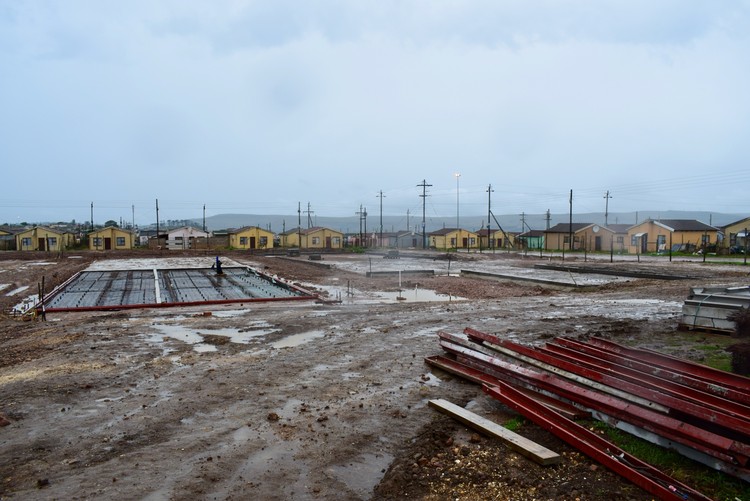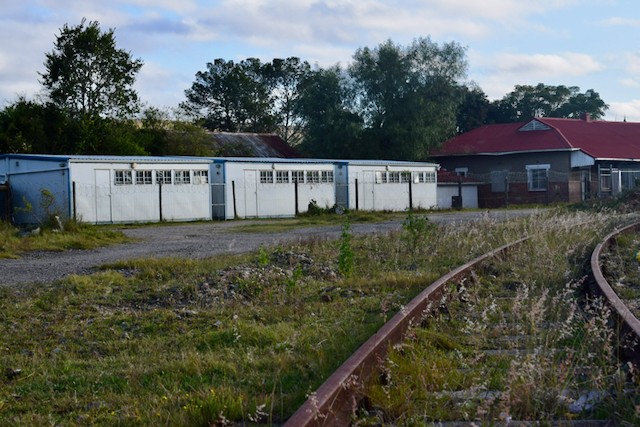14 years after court order, government starts building special school in Makhanda
Amasango Career School’s permanent premises to be completed by 2027
Construction of new premises for the Amasango Career school in Extension 10, Makhanda, has started 14 years after the High Court ordered it. Photo: Lucas Nowicki
Construction of new premises for the Amasango Career School has started. This is 14 years after the Makhanda High Court ordered the Eastern Cape Department of Education to provide a plan for a permanent premises by 2012.
Department spokesperson Mali Mtima said contractors are expected to finish the construction of temporary premises in June this year, and of permanent premises by November 2027.
Mtima said the department had failed to comply with the 2010 court order because it had struggled to find a suitable site.
The school, founded in 1996, caters for impoverished children, many of them orphans or children living on the street. It has been operating out of an abandoned railway station in the industrial area since 2001. It was registered as a special needs school in 2003.
In 2010, represented by the Legal Resource Centre (LRC), the school won a landmark court case declaring the schools learning environment unconstitutional. But besides the addition of some prefabricated classrooms in 2011, the department did nothing to meet the court order.
After a decade of engaging the department, the school governing body (SGB) went back to court in 2019.
In 2022, Judge Olav Ronaasen ordered the department to meet the 2010 court order. The department then committed to building a permanent school by 2027.
Amasango principal Girlie Shadaya told GroundUp they are being kept up to date on the building progress by the department.
Cameron McConnachie, LRC regional director, said they were pleased construction was underway. He said the department is obliged to report on its progress to the court every three months, and the LRC will monitor the progress of the school’s construction.
The current premises of the Amasango Career School at an abandoned railway station in Makhanda. Archive photo: Lucas Nowicki
Support independent journalism
Donate using Payfast

Don't miss out on the latest news
We respect your privacy, and promise we won't spam you.
Next: Philippi gangsters say they’ll only stop killing if government pays them
Previous: Housing activists confront Western Cape Premier at coffee shop
© 2024 GroundUp. This article is licensed under a Creative Commons Attribution-NoDerivatives 4.0 International License.
You may republish this article, so long as you credit the authors and GroundUp, and do not change the text. Please include a link back to the original article.
We put an invisible pixel in the article so that we can count traffic to republishers. All analytics tools are solely on our servers. We do not give our logs to any third party. Logs are deleted after two weeks. We do not use any IP address identifying information except to count regional traffic. We are solely interested in counting hits, not tracking users. If you republish, please do not delete the invisible pixel.


